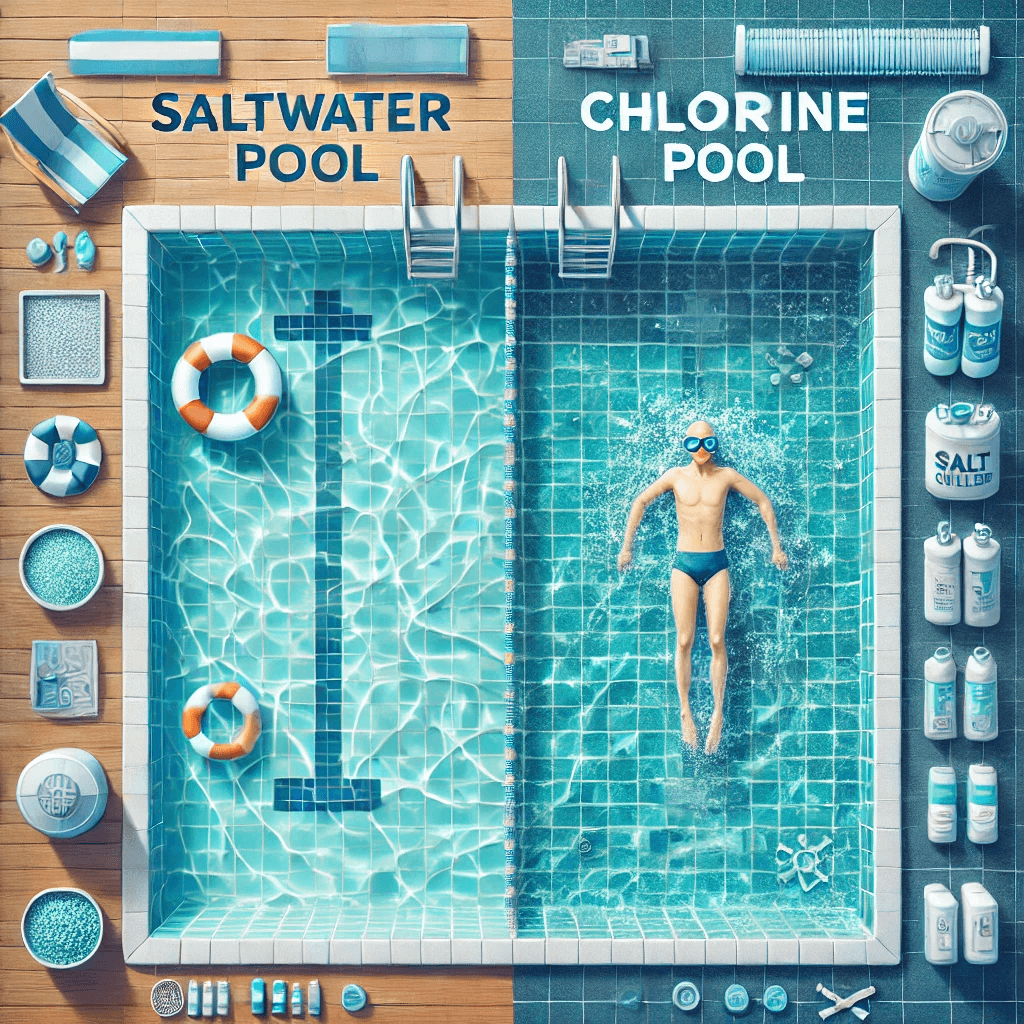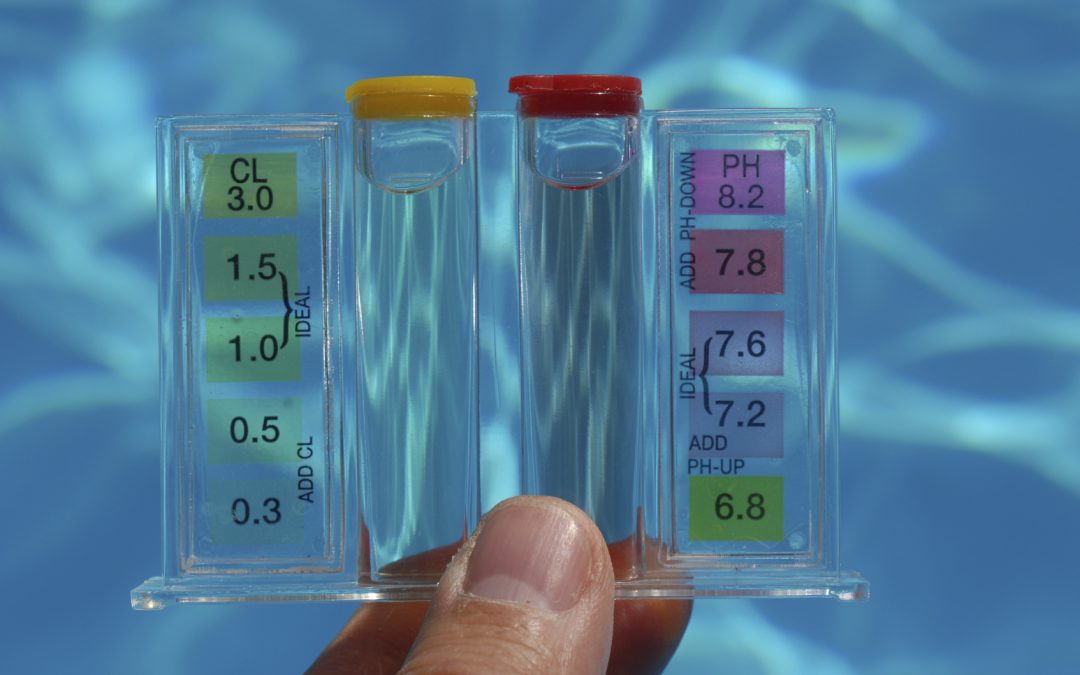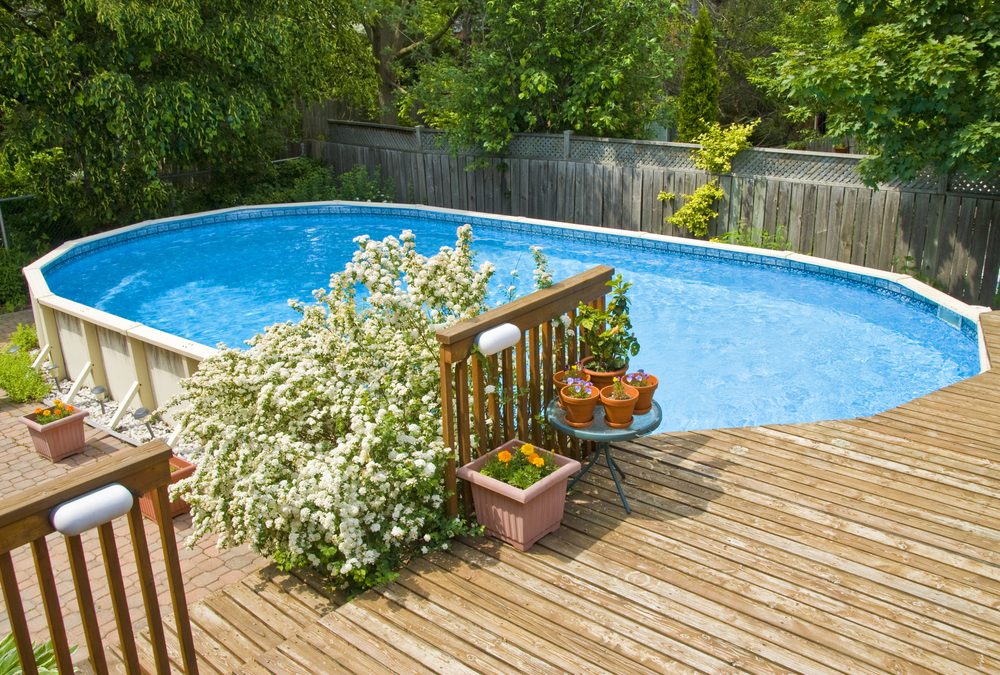Choosing between a saltwater or chlorine pool can impact not just your swimming experience but also how you maintain your pool. At Supreme Pool Service and Repair, we understand that every pool owner’s needs are different, and we’re here to guide you through the pros and cons of each system’s maintenance requirements.
Understanding Saltwater Pools
Saltwater pools use a salt chlorine generator to convert salt into chlorine. This process, known as electrolysis, continuously sanitizes the water, providing a steady supply of chlorine to keep your pool clean.
Pros of Saltwater Pools:
Gentler on Skin and Eyes: Saltwater pools are known for being more gentle on the skin and eyes. The lower chlorine content means fewer irritants.
Steady Chlorine Levels: These pools produce their own chlorine, which helps maintain consistent levels, reducing the peaks and valleys common with manually chlorinated pools.
Less Maintenance: Saltwater systems require less frequent attention since the chlorine is generated automatically.
Cons of Saltwater Pools:
Higher Initial Cost: Installing a salt chlorine generator can be expensive.
Complex Equipment: The salt cells and control units can require costly repairs and aren’t as straightforward to troubleshoot or replace.
Corrosive: Salt can be corrosive to some pool components and deck areas, requiring specific construction materials or additional protective measures.
Understanding Chlorine Pools
Traditional chlorine pools use added chlorine (in liquid, granular, or tablet form) to sanitize the pool. This method has been the standard for decades.
Pros of Chlorine Pools:
Cost-Effective: Chlorine pools generally have lower initial setup costs compared to saltwater systems.
Simplicity: They are easier to manage for those familiar with pool chemistry.
Strong Oxidizing Power: Chlorine is excellent for shock treatments and tackling algae blooms quickly.
Cons of Chlorine Pools:
Chemical Handling: Requires regular handling and storage of harsh chemicals.
Fluctuating Levels: Chlorine levels can fluctuate more widely, requiring frequent testing and adjustment.
Harsher on Swimmers: Can be harsher on the skin, eyes, and even swimsuits due to higher chemical concentrations.
Maintenance Tips
For Saltwater Pools:
Regularly check and clean the salt cell to ensure it is free from calcium buildup.
Monitor salt levels and add salt as needed to maintain the system’s efficiency.
Test other chemical levels periodically, as the pH may rise due to the natural process of electrolysis.
For Chlorine Pools:
Regularly test water chemistry and adjust chlorine and pH levels as needed.
Perform shock treatments periodically to manage bacteria and algae growth.
Store chlorine products safely and handle them with care to avoid accidents.
Let Us Help
Whether you opt for a saltwater or chlorine pool, regular maintenance is crucial. Supreme Pool Service and Repair offers expert services tailored to each type of pool. Contact us to schedule a consultation or maintenance service, and ensure your pool remains a clean, safe, and enjoyable part of your home.





Facebook Comments